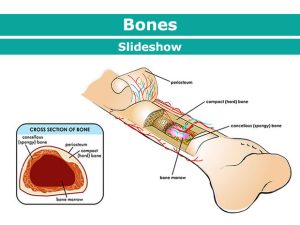If the baby feeds frequently at night, mothers will experience sleepless nights one after another. This type of parenting experience is exhausting and should not be the norm. My baby feeds frequently at night, but I still can’t get it done after trying various methods. What should I do? In fact, there is no unified way to deal with frequent night feedings. According to the baby’s individual situation, it is possible to achieve results by taking three steps.
- Determine whether night feeding is really frequent
- Investigate what causes frequent night feedings
- Respond to frequent night feedings based on different reasons
What constitutes frequent night feeding?
What constitutes frequent night feedings? Everyone has different standards. Some mothers feel that feeding three times at night is very frequent, but some mothers feel that feeding four times at night is not frequent. Therefore, in response to frequent night feedings, we must first understand what constitutes frequent night feedings and establish reasonable psychological expectations.
Generally speaking, babies before 6 months old still need night milk to meet their overall nutritional needs. Therefore, we cannot expect that babies under 6 months old will no longer need night milk at all. Between the ages of 6 and 12 months, as long as the baby and mother are willing, it is normal to maintain 1-2 night feedings.
When the baby wakes up every 1-2 hours or even every hour to take night feeds, it will be considered that night feeds are frequent.
What causes frequent night feedings?
Your baby may nurse frequently at night because he or she is hungry or simply seeking comfort. We can judge whether the baby is really hungry by observing the feeding status. For example, if a breastfed baby has an effective night feeding of less than 5 minutes, or a formula-fed baby has a night feeding of less than 60 ml, this usually indicates that the baby is not really hungry. On the contrary, the possibility of hunger will be considered.
Mothers often complain that “just after eating, they wake up again; after eating two mouthfuls, they fall asleep again”. This situation is usually due to the soothing nature of night feeding. The baby’s frequent night feedings for comfort may be related to sleeping habits, or may be related to illness or growth.
For example, babies who habitually nurse to sleep will often need to nurse after sleeping, resulting in frequent night feedings. As for disease or growth-related reasons, frequent night feedings only appear when the baby is sick, teething, or begins to suffer from separation anxiety.
Generally speaking, frequent night feedings related to sleeping habits will last for a long time, while frequent night feedings caused by diseases or growth reasons usually last for a short time and disappear on their own after the disease or growth reasons are resolved.
How to deal with frequent night feedings due to different reasons?
Frequent night feedings due to genuine hunger usually require a comprehensive individualized feeding assessment. For example, take a look at the baby’s growth status, the number of daily feedings and milk volume, the balance between complementary food and milk, and whether there have been any major changes in feeding operations recently. The key to coping is feeding, not sleeping.
For patients with frequent night feedings related to illness or growth and development, what we can do is actively cooperate with the treatment, respond to the baby’s needs in a timely manner, and provide more companionship and comfort. During this period, you should pay attention to maintaining a normal parenting style as much as possible and avoid developing some undesirable relationships or habits, which may lead to long-term sleep difficulties.
For example, when a baby’s eczema is severe, it affects his sleep at night and requires frequent night feeding. What we can do is to actively cooperate with treatment and care to control the symptoms of eczema, while keeping the room temperature comfortable, soothing the baby by stroking or patting, instead of feeding the baby as soon as he wakes up, which will cause the baby to slowly form a sleep association. .
The sleep association mentioned here means that the baby associates his sleep with a specific action. For example, when breastfeeding is associated with sleep, the baby will associate sleeping with breastfeeding. If the baby is habitually put to sleep by sucking milk, when the sleep cycle changes, he will also need to suck milk to sleep.
The sleep cycle of babies under one year old is usually between 30-60 minutes. Therefore, once there is a sleep association with breastfeeding, the baby may wake up every 30-60 minutes of sleep cycle and ask for milk to sleep.
To deal with frequent night feedings related to sleep habits, the key is to avoid breastfeeding and sleep related to sleep. You can try from three aspects:
- Arrange your overall work and rest time reasonably to avoid excessive fatigue.
For example, if you are 0-3 months old, sleep on demand and let your baby sleep every hour or so during the day. At 3-6 months of age, you can consider taking about 3-4 daytime naps. By 7-12 months of age, two naps during the day may be enough. The transition from 3 naps to 2 naps during the day is usually between 8 and 9 months of age.
- Establish a good bedtime routine.
For example, for babies under one year old, you can set aside 30 minutes for bedtime routines before going to bed, arrange bathing, brushing teeth, wearing a sleeping bag, telling stories, playing soothing music, etc., and strive to achieve the last few moments before the baby goes to sleep. One moment in his own crib. Guide slowly in this way so that the baby associates sleep with these bedtime routines and his or her own crib, rather than feeding.
- Reasonable way to fall asleep and avoid habitual feeding of milk to lull you to sleep.
Before each sleep, give your baby a chance to try to fall asleep on his own, and only provide some comfort when necessary, such as companionship, patting, humming, etc. In addition, reasonably arranging work and rest time, avoiding excessive fatigue and establishing an ideal bedtime routine can actually fundamentally reduce the difficulty of falling asleep and help babies fall asleep independently. For babies who have formed the habit of breastfeeding or drinking milk to put them to sleep in the past, it takes a relatively long time to slowly disconnect from the sleep association, usually around 2 weeks. The older the baby is, the longer the sleep association takes to form, and the more time it takes to disconnect. The difficulty is relatively high.
In addition, when disconnecting from sleep, try to seek individualized assessment, guidance and support, and avoid using rigid methods or forcing the baby to cry.
In short, when your baby has frequent night feedings, don’t blindly apply so-called tricks or theories. Each baby has its own reasons for frequent night feedings. Try to identify the reasons first, and then respond individually according to different reasons. Only in this way can you get the highest probability of success.




